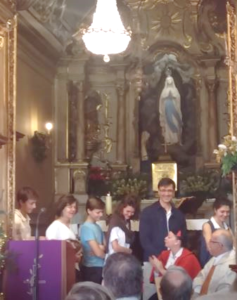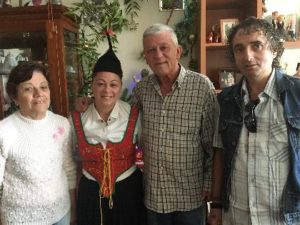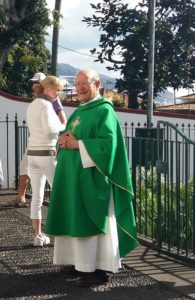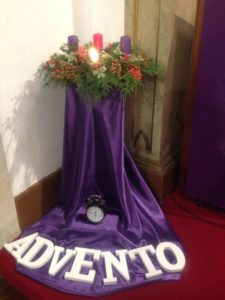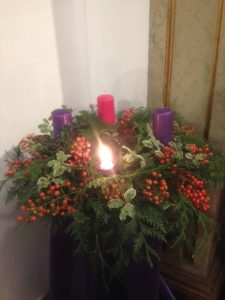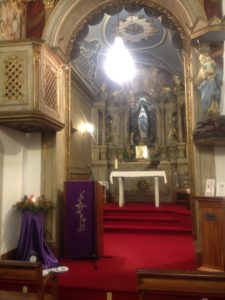FROM MY HEART TO YOUR HEART – Holy Family
– Brought to you by Fr. Bernardino Andrade (bernardinodandrade@gmail.com)
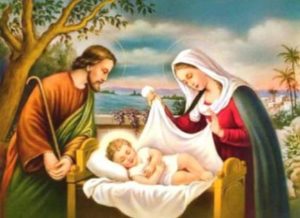
HOLY FAMILY – THE SUNDAY AFTER CHRISTMAS
The Catholic Liturgy celebrates the Feast of the Holy Family on the Sunday after Christmas. Church is about relationships. Family is about relationships. The difference between a good family and a bad family is the level of communication.
Last Monday, on Christmas Day, a large family with 7 children attended Mass here at the Chapel. They were on holiday in Madeira, visiting from France. During Mass I invited the family to come up to the altar and introduce themselves to everyone. I asked if each member of the family could say their name, age, and something that has been good about being part of a large family. The father of the family spoke first, and what he said was beautiful.
He said:
“Thank you very much Father. We have what can be considered a big family… seven children! Seven reasons to be happy; and Seven reasons to be sad sometimes. Seven people to love, and to be loved by…
And I would say… seven reasons to thank God!”
ADOPT A FAMILY FOR CHRISTMAS
Related with the «People Helping People» project, my Parish in California, started another project we called «Adopt a family for Christmas».
My Parish already had a program called «Christmas Baskets». But Christmas baskets had their rules and their paralyzing bureaucracies. It was supposed to be for Parishioners only with proof of residence. I have never been famous for following rules especially in dealing with people’s suffering. When we build boundaries (“Parishioners only”) we build walls that exclude people. Exclusion is the opposite of the Good Shepherd’s dream. It is the opposite of church that is supposed to be a family. Besides I always believe that in Liturgy my main job is to mobilize many people to involve many people, and the same in dealing with the poor. My main job should be «to mobilize many people to help many people».
«Adopt a family for Christmas» consisted in taking the names of the people who needed help and the names of the people who were willing to help. Families willing to help would adopt a needy family and they would take care of their needs, like toys for the children, food or clothes or whatever. No association would be controlling them or telling them what to do or how to do it. The main thing would be to build a kind and loving relationship between the two families. The results were excellent.
HOLY FAMILY SUNDAY
ADOPT A HOMELESS PERSON FOR CHRISTMAS
Carla Rodrigues, one of the leaders of the People Helping People project in our Community decided to do, for the first time, something similar to «Adopt a Family for Christmas». But she went a little further. In the project People Helping People, Carla is dedicating her ministry towards the homeless. The results are slower but Carla is a woman who doesn’t believe in quitting. Or, as she says, she will quit only when God quits. That means never. God never quits on any of His children.
She knows the statistics. When a person sleeps in the streets during three days, it takes three months to recover and to integrate that person back into society. When a person is homeless for three months it takes three years to recover that person and to integrate him/her back into society. That’s why Carla knows that failures and lack of success are part of her job.
The most important thing like Mother Teresa says, is not success but fidelity.
This year, December 25, Christmas Day, instead of preparing food and clothes for the homeless she invited one of them to join her family and have Christmas dinner at her home. Her parents were very cooperative and it was a great experience.
Beto (not his true name), joined them, very clean and had also his Christmas present like anybody else. On Christmas Day, a new program was established with the name of «ADOPT A HOMELESS PERSON FOR CHRISTMAS». Thank you Carla. This is just the beginning of many beginnings and many failures. Maybe next Christmas we will have more people adopting a homeless person for Christmas.
Love and Peace
Fr. Bernardino Andrade
